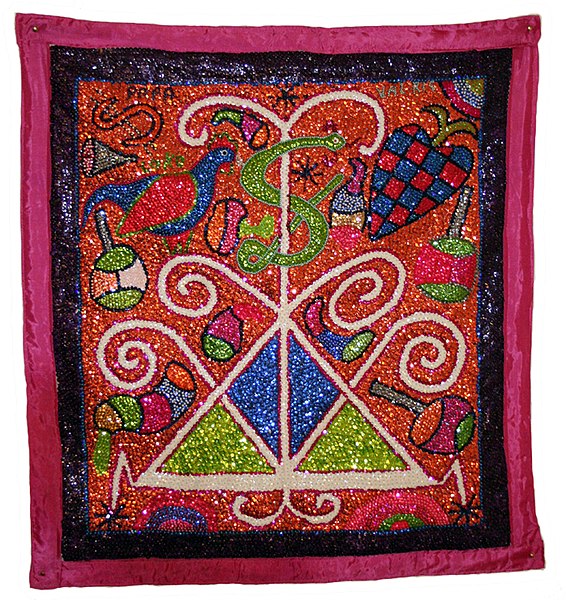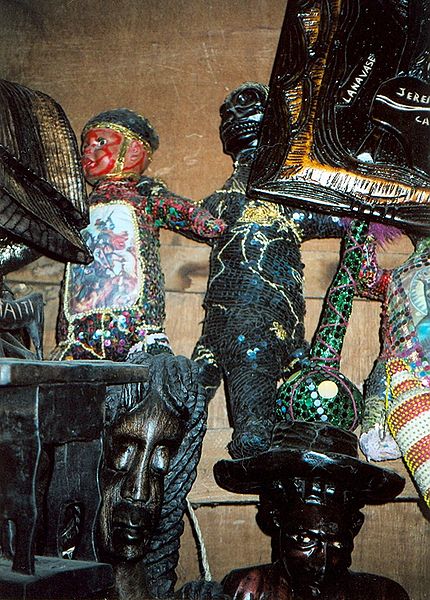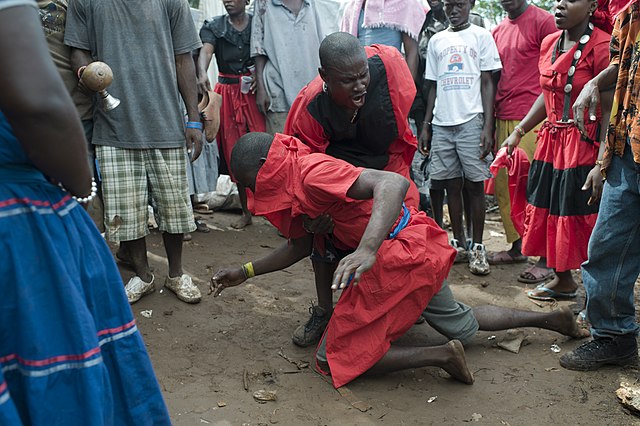Haitian Vodou is an African diasporic religion that developed in Haiti between the 16th and 19th centuries. It arose through a process of syncretism between several traditional religions of West and Central Africa and Roman Catholicism. There is no central authority in control of the religion and much diversity exists among practitioners, who are known as Vodouists, Vodouisants, or Serviteurs.
A sequined drapo flag, depicting the vèvè symbol of the lwa Loko Atison; these symbols play an important role in Vodou ritual
Vodou paraphernalia for sale at the Marché de Fer (Iron Market) in Port-au-Prince, Haiti.
An oungan (Vodou priest) with another practitioner at a ceremony in Haiti in 2011
A selection of ritual items used in Vodou practice on display in the Canadian Museum of Civilization.
African diaspora religions
African diaspora religions, also described as Afro-American religions, are a number of related beliefs that developed in the Americas in various nations of the Caribbean, Latin America and the Southern United States. They derive from traditional African religions with some influence from other religious traditions, notably Christianity and Islam.
Example of Louisiana Voodoo altar inside a temple in New Orleans.





